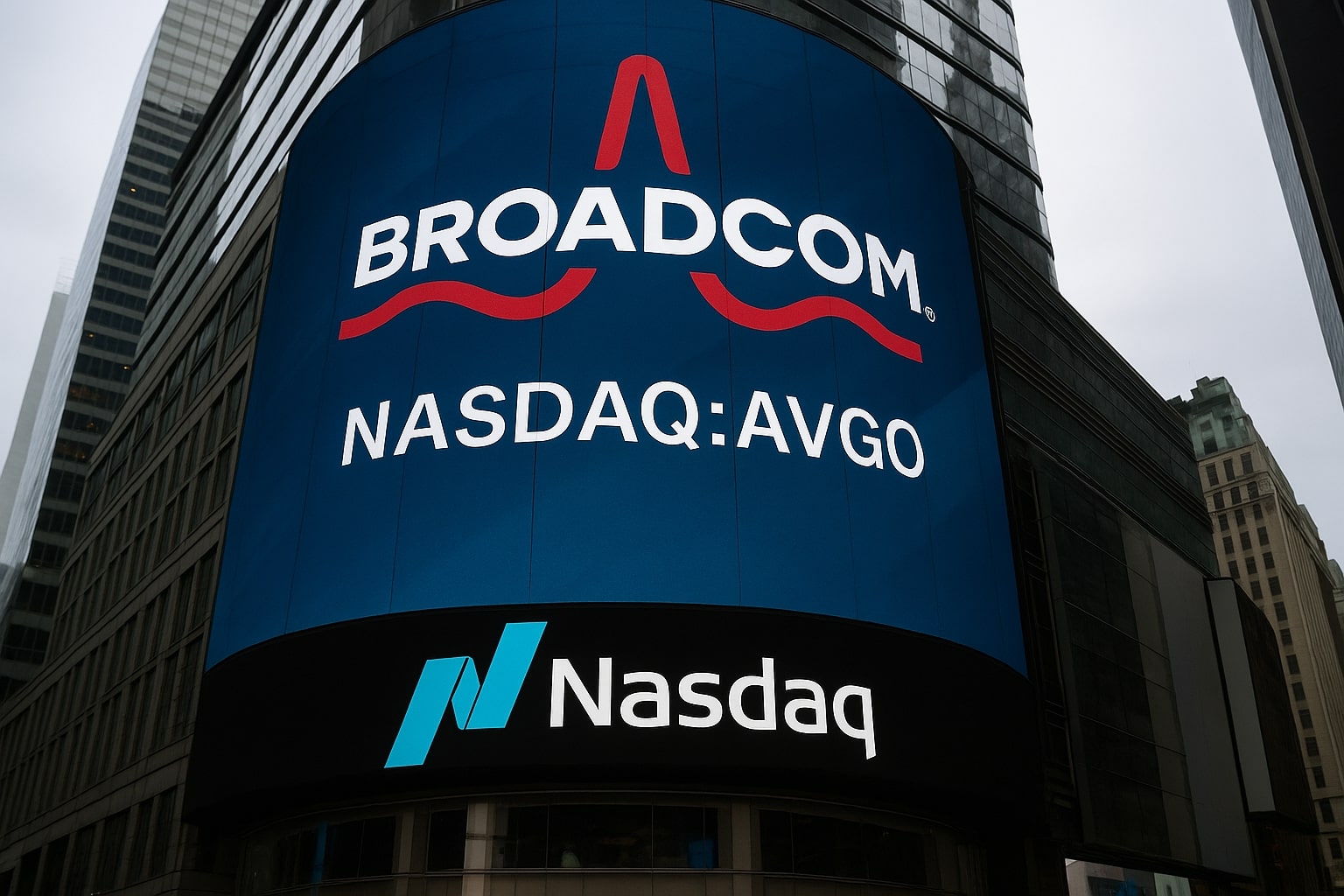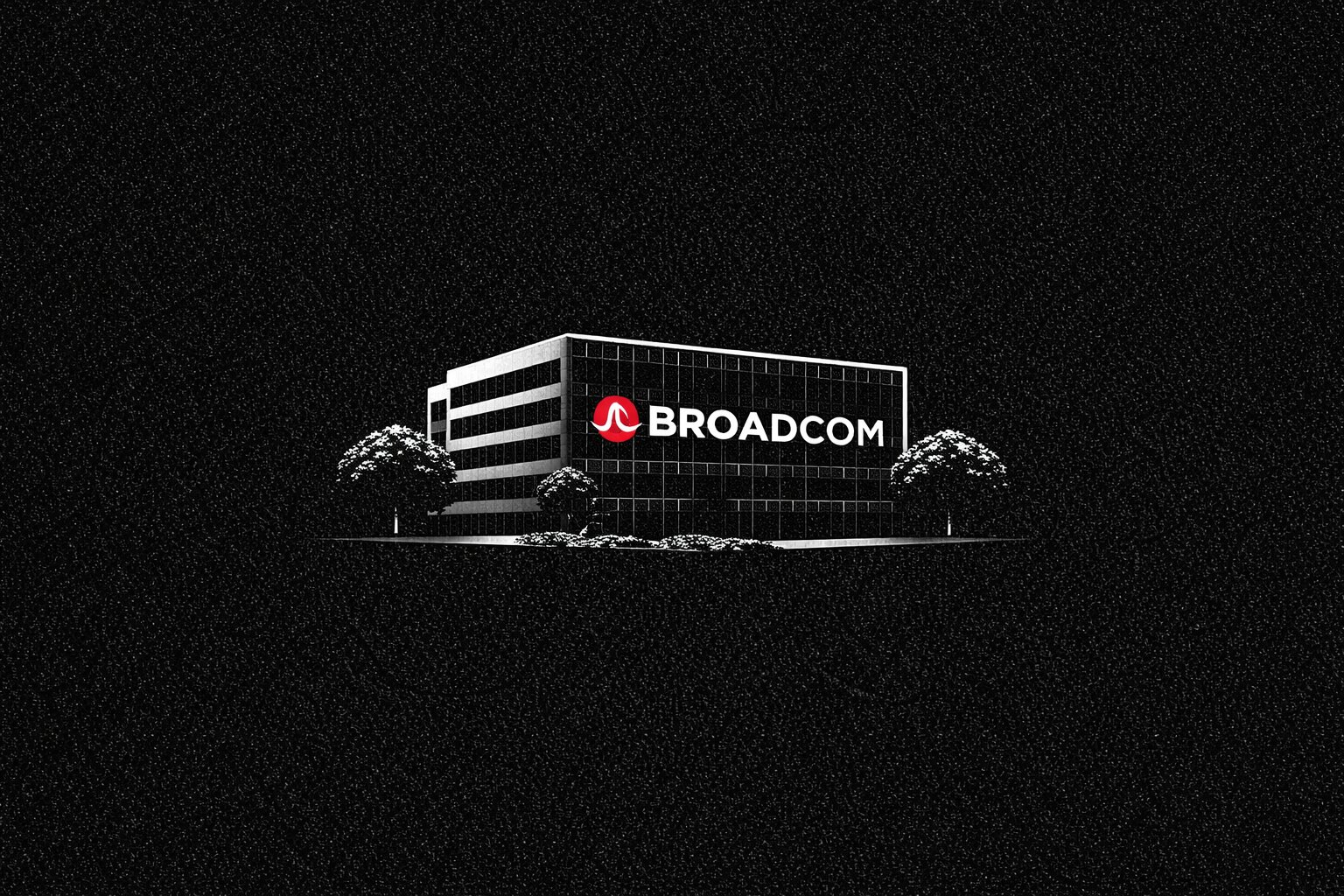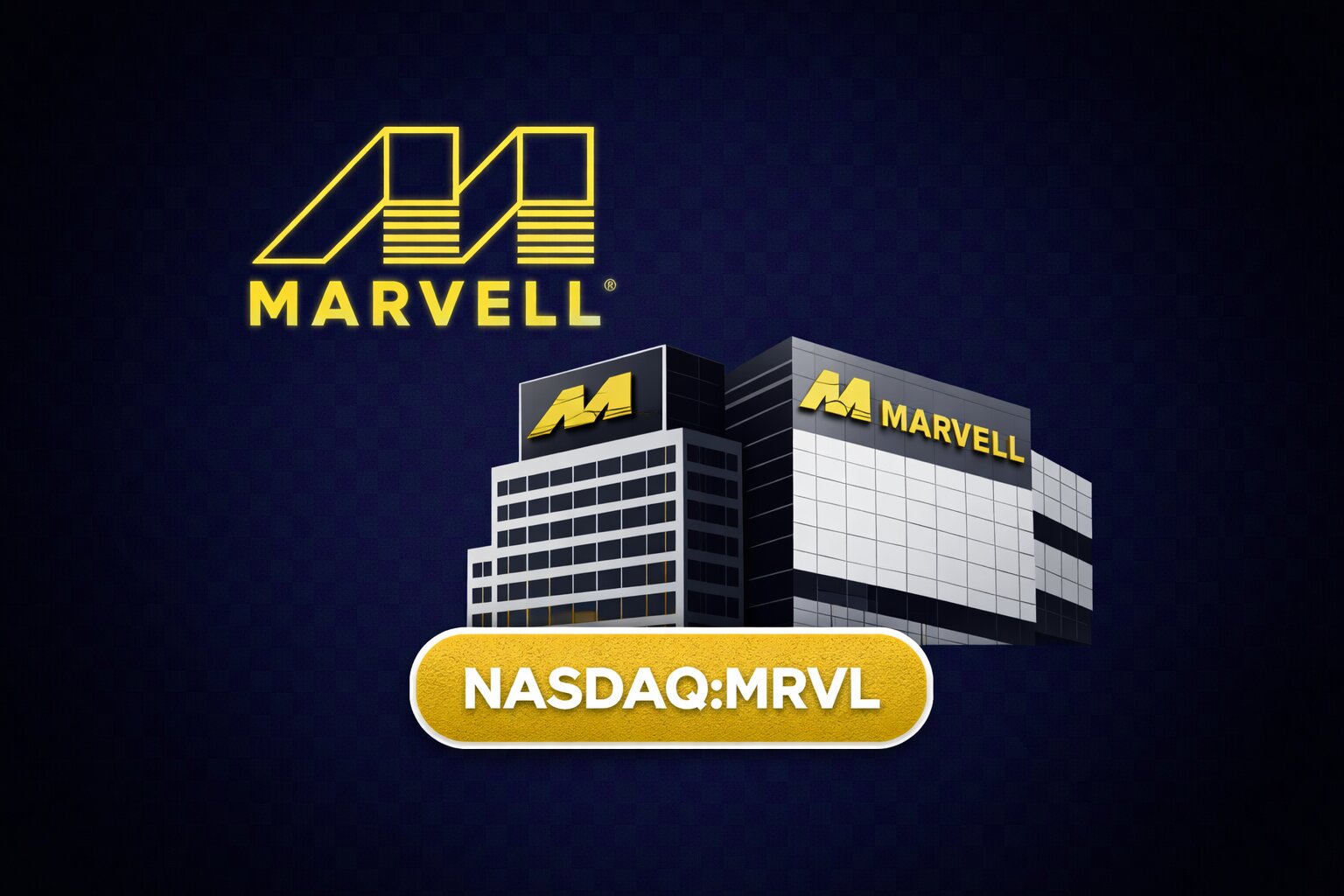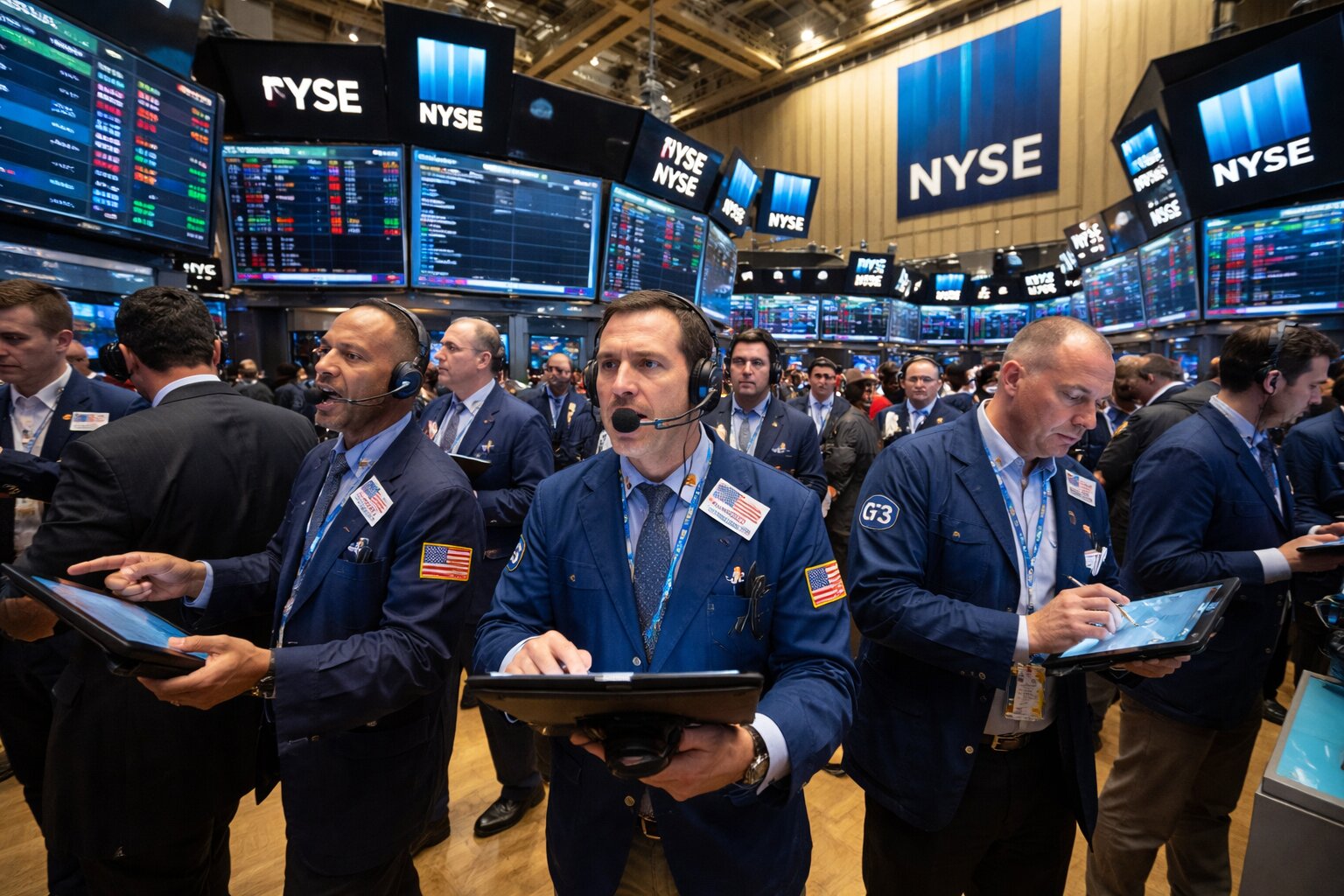
Broadcom (NASDAQ:AVGO) Stock Holds at $294 With AI Momentum and VMware Integration Driving Outlook
AI chip demand, VMware synergies, and strong cash flow power Broadcom higher despite insider selling and valuation concerns | That's TradingNEWS
Broadcom (NASDAQ:AVGO) Trades Near $294 After Aggressive 12-Month Rally
Broadcom (NASDAQ:AVGO) is consolidating just below the $300 threshold at $294, a level that reflects a 109% surge over the past year. Despite profit-taking pressure and insider selling, the stock’s fundamental drivers remain firmly tied to AI infrastructure demand and the company’s ability to extract value from its $69 billion VMware acquisition. While the broader semiconductor sector has shown signs of volatility, AVGO’s market capitalization north of $1.2 trillion has reinforced its position as one of Wall Street’s cornerstone AI plays.
Earnings Guidance Anchored at $15.8 Billion With AI Surging 46%
For the upcoming quarter, Broadcom has guided revenue to $15.8 billion, with AI chip revenue forecasted to climb 46% year-over-year, representing nearly one-third of its semiconductor business. The company’s XPU architecture, blending CPUs and GPUs in custom accelerators for hyperscalers, is winning orders from Amazon, Google, and Meta, while networking gear continues to expand margins. Gross margins are expected to remain close to 75%, signaling Broadcom’s ability to balance premium pricing with supply chain efficiencies.
Insider Selling Tops $360 Million, Raising Investor Caution
Despite the bullish backdrop, insider activity has been a headwind. Executives and directors have sold more than $360 million worth of shares in recent months, capitalizing on AVGO’s run toward record highs. While some investors dismiss these transactions as routine diversification, the scale of selling — including over $80 million by CEO Hock Tan — has fueled concerns that insiders see limited upside in the near term. Still, long-term institutional investors remain committed, with AVGO held widely in top-performing tech ETFs, including QQQ and SMH.
Hedge Funds Adjust Exposure as Valuation Premium Expands
Hedge fund positioning has shifted notably in the last quarter. Funds such as Viking Global and Coatue have trimmed stakes in Broadcom, citing stretched valuation multiples with the stock trading at 27x forward earnings. Conversely, Tiger Global and Renaissance Technologies have added exposure, betting that the integration of VMware will unlock recurring software revenue and reduce Broadcom’s reliance on cyclical semiconductor demand. This divergence highlights the ongoing debate around whether AVGO is overextended after its meteoric rally.
Analyst Targets Push Toward $340 Despite Technical Resistance
Wall Street sentiment remains skewed bullish. Price targets range from $310 on the conservative side to $340 at the high end, reflecting confidence in Broadcom’s cash flow generation, which topped $17 billion in free cash flow last year. However, technicals are flashing mixed signals. The RSI has retreated from overbought conditions, with AVGO hovering above its 50-day moving average at $286, while the 200-day average sits at $254, offering longer-term support. A sustained break above $300–305 would confirm momentum toward $320, but failure to hold $290 could trigger a retracement back toward $275.
AI Infrastructure and VMware Integration Define Strategic Outlook
The integration of VMware remains central to Broadcom’s pivot from hardware-driven revenues to hybrid hardware-software ecosystems. Analysts expect VMware to contribute $4.6 billion in quarterly revenue, with operating margins above 50% post-synergy. By combining VMware’s cloud management stack with Broadcom’s networking hardware, the company is creating an end-to-end enterprise infrastructure solution at a scale few rivals can replicate. This diversification could cushion AVGO if AI semiconductor demand moderates in 2026–2027.
Government and Enterprise Contracts Add Stability
Beyond hyperscalers, Broadcom has quietly deepened its contracts with the U.S. Department of Defense and major telecom operators. Networking switches and AI-optimized infrastructure are being deployed across secure environments, ensuring a baseline of government-linked revenue that insulates Broadcom from pure market cycles. These multi-year deals, worth an estimated $3 billion annually, provide cash flow visibility at a time when other semiconductor names remain exposed to inventory corrections.
Valuation and Risk Assessment at Current Levels
At $294, Broadcom’s valuation reflects both the AI premium and execution on VMware. Its dividend yield of 1.5% continues to attract income-focused investors, though the payout ratio near 50% of earnings suggests limited room for acceleration without stronger profit growth. Risks include higher-than-expected integration costs, potential regulatory scrutiny over VMware bundling practices, and competition from Nvidia’s accelerated compute roadmap.
Strategic Verdict: Broadcom Looks Like a Buy on AI and Cash Flow Strength
Broadcom remains one of the few semiconductor companies with both scale and diversification across AI, networking, and enterprise software. While insider selling and hedge fund trimming highlight valuation concerns, the growth trajectory — with AI revenue expanding at nearly 50% annually — outweighs near-term caution. At $294, the risk-reward still leans bullish. A buy-on-dips strategy toward $285–290 appears attractive, with upside potential toward $320–340 over the next 12 months if AI momentum and VMware synergies play out as expected.
That's TradingNEWS
Read More
-
Broadcom Stock Price Forecast: AVGO at $325 Ahead of AI-Driven Earnings
14.02.2026 · TradingNEWS ArchiveStocks
-
XRP Price Forecast: Ripple XRP-USD Climbs Back to $1.47 but $1.80 Wall and Sub-$1 Risk Still Dominate
14.02.2026 · TradingNEWS ArchiveCrypto
-
Natural Gas Futures Price Holds Around $3.20 as Storage Tightens and Winter Premium Fades
14.02.2026 · TradingNEWS ArchiveCommodities
-
Stock Market Weekly Recap: S&P 500 Stalls, Nasdaq Leads the Decline, Dow Eases as AMZN, NVDA, AAPL Sell Off
14.02.2026 · TradingNEWS ArchiveMarkets
-
GBP/USD Price Forecast - Pound Stuck at 1.36 as Fed Cut Hopes Clash With UK Weakness
14.02.2026 · TradingNEWS ArchiveForex


















